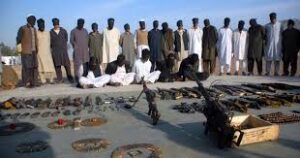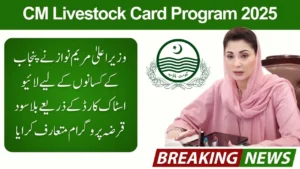Housing and urban areas are an important issue for any owner, especially for a large Turkish owner like Pakistan. With the rapidly increasing population, expanding cities and growing urban areas, the demand for affordable housing and advanced urban infrastructure has also reached the country. Many agreements have been made for the criticism of the government, the sharing of Nazi weapons and dealing with unrequited atrocities, improving the stability of the country, garrisoning small populations, and planning to colonize urban areas in a more mature manner.
In this article, we look for a way forward for housing in Pakistan and the sights of urban Turkey, its challenges, government scams, current agreements in 2025, and to make the people and weak cities trustworthy.
Also read : Sustainable Urban Housing Development in Pakistan Through Planning Mechanism: Challenges and OpportunitiesThe Current State of Housing in Pakistan
Pakistan is facing a housing shortage of more than 10 million tonnes, as most of the ponds come from villages with low and poor population. Urban areas like Karachi, Lahore, Awadh, and Pasuhar are facing huge population pressures, resulting in the formation of densely populated settlements and poor populations.
🏙️ Urban Population
Over 40% of Pakistan’s total population lives in urban areas.
🚶♂️🏡 Rural-Urban Migrationion.
🏚️ Slum Dwellers
More than 30% of the urban population lives in katchi abadis (slums).
🏠⚒️ Informal Housing
50–60% of urban housing is made up of informal settlements.
Key Challenges in Housing and Urban Development
- Lack of housing
The real state market ruins most of the population. The housing is ignored due to high prices of food, expensive goods, and high prices for the dead. - Weak city with closed plans
The lack of populated cities, poor cleanliness, poor nails and teeth, and lack of green spaces is the reason for the lack of green spaces. The master plans for cities are often only written on paper or are written in writing. - Ineffective marketing mechanism
Home marketing is mostly a problem for Pakistanis, especially in the case of foreign trade. The requirements of strong documents and weak urbanisation are inadequate due to the need for proper housing. - Renovation and foreign settlements
The lack of food grains, lawful agreements and poor quality of housing promote the possibility of increasing the availability of fresh housing, especially on public land, as urban terrorism becomes a reason for infighting. - greatness strangeness
Whether you live in the city or not, you are always a part of the water, the forest is cut off, the water is cut off, or you are a part of the urban flood, especially on the unseen areas.
Major Government Initiatives
The Government of Pakistan has recognized the urgency and introduced several reforms and schemes over the past few years. Notably:
🏠 Naya Pakistan Housing Program (NPHP)
Launched in 2018, this flagship initiative aimed to build 5 million affordable homes for low-income families. Under this program:
🏦 Subsidized Loans via Banks
Subsidized housing loans were provided through commercial and microfinance banks.
🗺️ Land Allocation for Low-Cost Housing
Government allocated land for the development of affordable housing schemes.
🏗️ Tax Incentives for Construction Industry
The construction sector received tax incentives to boost low-cost housing development.
🏢 Urban Regeneration Projects
Major cities like Lahore, Karachi, and Rawalpindi have undergone revitalization through:
- 🏛️ Restoration of historical buildings
- 🏘️ Upgradation of slums into formal housing
- 🚉 Improvement of road networks and public transport systems
🏦 Mera Pakistan Mera Ghar (MPMG)
A flagship housing finance scheme aimed at increasing home ownership through subsidized loans:
- 💰 Loans of up to PKR 10 million
- 📉 Low interest rates of 3% to 5%
- 🕰️ Loan tenure of up to 20 years
🌳 Clean Green Cities Program
A national drive for environmental sustainability in urban areas, focusing on:
🏗️ Promotion of eco-friendly and sustainable construction practices
🌱 Plantation campaigns and greenbelts
🗑️ Reforms in solid waste management
💧 Urban water conservation initiatives
Also read : Hajj Pakistan 2026, Government Hajj Scheme, Sponsorship Hajj, MoRA, Hajj Registration Extended, Hajj Application Process Pakistan2025 min nayi pesharft
badhti hoi shehri kari or rahaish ki zaroryat ke jawab min, 2025 min kai nayi or behtar sakimin sharo ki gayin:
✅ 1. panjab aford abl houseng atharti (PAHA) parogects
🏘️ janobi panjab min 50,000 naye saste makanat ki taumer
👩🦽 khwatin, mazur afrad, or kam aamadani wale khandanon par khdudsi tojah
⚡ soler pence or watr ri cycling sastim wale samart hom
✅ 2. sandh shehri tosi ki hakmat amali
🗺️ karachi or hidarabad ke liye ap det kardah master plan
🏙️ shehr ke marakaz min bhed ko kam karne ke liye satelit touns ki tarqi
🏢 jagah ki karkardgi ke liye amudi houseng madus ka farog
✅ 3. ke pi arban garoth anisheto
🚌 pashaur bi aar ti (bas wrapped transit) sastim ki tosi
🗑️ mardan or swat min samart west mingement ka nafaz
🏞️ daryaye kabl ke kanare riyor farnt houseng parogects
✅ 4. aa aabad garin sti plan
🌿 kam karban houseng kalters ki tarqi
🏬 safari zaroryat ko kam se kam karne ke liye mukhaloot istamal wale zoning ka taaarf
🚶♀️ parks or pedil chalne walon ke liye mozon balewards ki takhaleeq
The Role of Technology in Urban Development
🗺️ GIS & Satellite Mapping
Used to detect illegal constructions and map slum areas, helping authorities take targeted action.
📑 Digital Land Records
Aimed at eliminating land grabbing and simplifying land ownership through transparent and accessible digital databases.
🏙️ Smart Cities Pilot Projects
Launched in Islamabad and Lahore, these projects focus on tech-enabled urban services, smart infrastructure, and efficient city management.
🧾 e-Approval Portals
Digital platforms for building plan approvals, reducing manual paperwork, minimizing delays, and curbing corruption in the approval process.
Private Sector and International Collaboration for Housing and Urban Development
In addition to government efforts, various non-governmental and international stakeholders have significantly contributed to housing and urban development:
🏠 NGOs in
Organizations like Habitat for Humanity and the Aga Khan Agency for Habitat are actively supporting rural housing and disaster-resilient construction in vulnerable areas.
🌍 International Financial Institutions
The World Bank and Asian Development Bank (ADB) have provided substantial funding for urban transport, water supply, and infrastructure projects in major cities.
🏗️ Public-Private Partnerships (PPP)
The government is promoting PPP models for the development of new housing colonies and urban infrastructure, enhancing efficiency and innovation through private investment.
🚀 Way forward:
To make urban Turkey capable of naming and living in urban areas secure from the cold and wind, Pakistan should focus on the following strategic institutions:
✔️ Reject the economic crisis.
🏘️ Provide land subsidy, present the requirements of the economic crisis, and implement the approvals for low-income housing institutions.
✔️ Relief in the policies of land use
📐 By giving relief to the illiteracy and to improve the use of land, by stopping the unplanned urban activities, increase the comfort of the urban planning.
✔️ Improve the urban areas
🏛️ To implement the city’s authority more, make it more independent, digital tolls, and master plans and to improve the availability of resources, make it more authoritative with planned methods.
✔️ Give relief to the green and flexible cities.
🌱 Implement the building codes of the garden, strengthen the strong winds that can be detected, and now make flexible structures for the air, which will make the protection from the evacuation and the festival secure.
✔️ Make the housing fans strong
💸 Macro fans and Islamic housing fans will have a long life till Madus, especially for the works of the Rasmi Nights and the owners of the house for the first time.
Conclusion
Turkey are not about the size of homes – they are about building family, population, and happy communes. Pakistan is standing at a crossroads where its urban population is both a challenge and an opportunity. With the help of strong cities, strong policies, and the shrinkage of cities, owners can transform their cities into cities without any disturbance or excesses.
2025 is a complete mess, as family life, strong urban infrastructure, and population are moving towards Turkey. The journey is long but tomorrow there will be a better one, and the foundation of Pakistan is being laid down more actively today.




